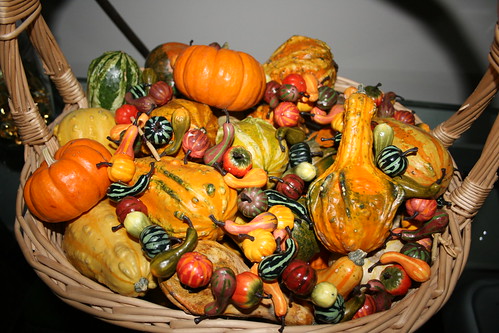Thanksgiving Forward
by David Baer | published: Saturday, November 1, 2014, 12:00 AM
As we enter the month of November, we look forward to celebrating Thanksgiving. For most of us it’s a day for food, family, and football, but perhaps also for giving thanks. The origin story of this holiday, known to every schoolchild, is a celebration of harvest, survival, and the memory (whether accurate or not) of a season of cooperation between English settlers and Native Americans, and rendering thanks to God for these blessings. Our Puritan forbears, whatever their faults, were keenly aware of the tenuousness of their life in the New World. That they had succeeded in producing a harvest, or even surviving in the numbers they did, were not mere routine occurrences. Their tiny and vulnerable colony was not so secure that they could take any of these things for granted. Their prosperity, however meager it may have been, was evidence of God’s active favor and blessing falling on them, and so their expressions of thanksgiving were anything but rote and formal pronouncements. Their thanksgiving was a lifting up of gratitude for the ongoing miracle they observed taking place in their midst.
The Puritans were not the first Christians to give thanks. The Greek word for Communion, the celebration of the Lord’s Supper, is eucharistia, which means “thanksgiving.” Right from the very start, when the first disciples incorporated the remembrance of Jesus’ death and resurrection into the meals they shared together, thanksgiving was a part of their life in community. For them, too, thanksgiving was anything but rote or routine. The breaking and raising of Jesus’ body gave birth to an ongoing miracle, the life of the body of Christ, where they were witnessing the coming together of estranged peoples—Jews and Gentiles—and miracles of healing, and the raising of the dead. Everywhere the powers that stood in the way of God’s promise of abundant life were falling away, because of Jesus. Their thanksgiving, their eucharistia, not only called Jesus’ saving acts to remembrance: by taking the elements into their bodies, they also demonstrated the present power of resurrection in their life as a community. Their thanksgiving looked backward to what Jesus had done, but also forward to what he was doing, and was yet to do, in them.
From their time until now, every day, somewhere on this earth, there is a Christian community breaking the bread and sharing the cup in remembrance and thanksgiving. What’s more, when Jesus spoke at his Supper about this act of remembrance, he never confined it to a formal liturgical setting. Whenever you eat the bread (which was a simple, typical meal), he said, do this in remembrance of me. The Thanksgiving dinner table, as well as the Communion table, is an appropriate place for recalling who(se) we are.
At some Thanksgiving dinners, people make a point of identifying the blessings that they are grateful for. There’s nothing wrong with doing this—it is a good and healthy thing to acknowledge all that God has done for us. But if you have done this often enough that it has begun to feel routine, consider trying a forward-looking thanksgiving. Acknowledge your blessings, yes, but try to discern their purpose too. If you are blessed with a strong family or a good job or financial security or a loving and supportive partner, and if these things come from God, if they are something more than winning cosmic lottery tickets, then your having them is meant to serve God’s purposes. You are blessed—now, how is it that you are meant to become a blessing? You are loved—how is that love transforming you to more perfectly love God and your neighbor?
I wish all of you a Happy and Blessed Thanksgiving!
This item originally appeared in the November 2014 issue of the Highlands Highlights.
